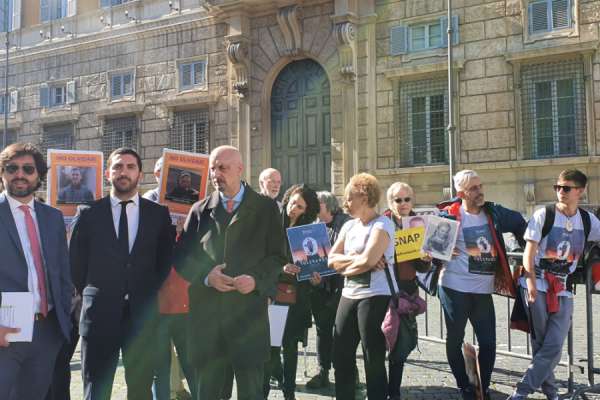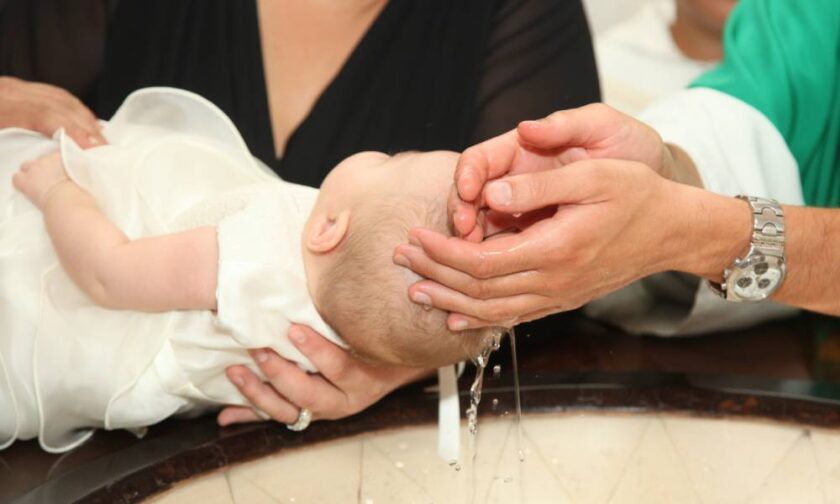
Rome, Italy, Feb 21, 2020 / 12:49 pm (CNA).- One year after the Vatican hosted a summit on the abuse crisis, three former students of an Argentine institute which cared for deaf children, and from which two priests were convicted last year of sexual abuse, have traveled to Rome to ask the Vatican for files on accused priests.
Two Catholic priests were sentenced to 40 years in prison after being convicted in November of sexually abusing students at the now-closed Antonio Provolo Institute for Deaf and Hearing Impaired children in Argentina’s Mendoza province.
Three victims, who are former students of the institute, were accompanied by around 18 other victims of clergy sexual abuse, activists, and lawyers at a gathering near the Vatican Feb. 21.
The group was at the United Nations in Geneva earlier in the week, where they gave presentations to the UN committees against torture, on disability rights, and on the rights of the child, according to Denise Buchanan of advocacy group Ending Clergy Abuse.
The Argentina case was presented “so that they can discuss it in the committees and pressure the Vatican to do whatever they need to do to make this stop from that end,” Buchanan told CNA.
One of the young victims from Argentina, Claudia Labeguerie, told CNA they went to the UN to “denounce the pope and the Vatican for cover-up, and then we came here to Rome to tell [about] the report.”
Labeguerie, who is deaf and uses sign language, spoke with CNA through her sister, Erica. Labeguerie said she suffered “abuse and torture by priests and sisters” at the Provolo Institute.
Buchanan, who was in Rome during the 2019 Vatican summit on abuse, said the Argentine victims “want Pope Francis to know that right here, right now is the time for there to be some reparation for them.”
She described reparation as including financial support for the victims, many of whom came from poor families. She also said they are looking for papal acknowledgment and changes to Church law.
The 2019 convictions in Argentina were for crimes which took place from 2004 to 2016. The cases involved 10 students, though around 20 have made abuse accusations.
Noting that some of the abuse occurred as recently as four years ago, Buchanan said they hope “people understand that [abuse is] not a past issue, it’s a present issue.”
Friday’s gathering was held in the square outside the offices of the Congregation for the Doctrine of the Faith, the department responsible for investigating and prosecuting crimes of abuse by clergy or religious according to Church law.
Buchanan and others present said they were outside the CDF because they want the Vatican to hand over to Argentine lawyers the files on priests connected with the Provolo Institute and their photos.
Lawyers for the students, who were also present Friday, want the files to aid in their own prosecutions, according to Buchanan.
The CDF does not share information or the case files on ongoing investigations and legal proceedings. After the conclusion, prosecutors in other countries may request access to case files through the Secretariat of State.
Gemma Hickey is the founder of victim advocacy organizations the Pathways Foundation and ACTS-Canada. The Church “has lost its way,” in handling clergy abuse, Hickey told CNA, calling for “ownership, transparency, accountability.”
Hickey, who is a victim of clerical abuse and now identifies as a transgender man, said, “when someone abuses you and they represent God, that never leaves you.”
“As much as you move on, as much therapy as you do, you still carry that with you every day. It’s very difficult. It compromises your faith and your relationship to God, your relationship with yourself.”
Members of SNAP, the ECA network, and BishopAccountability.org were also present at the gathering.
Patricia Dold, a religious studies professor, said she herself is not a victim of clergy abuse, but she is angry and frustrated “to see this Church fail survivors.”
Their presence in Rome “is just one way to make the statement that we want the Church to live up to its moral code.”
* This article was originally published here






